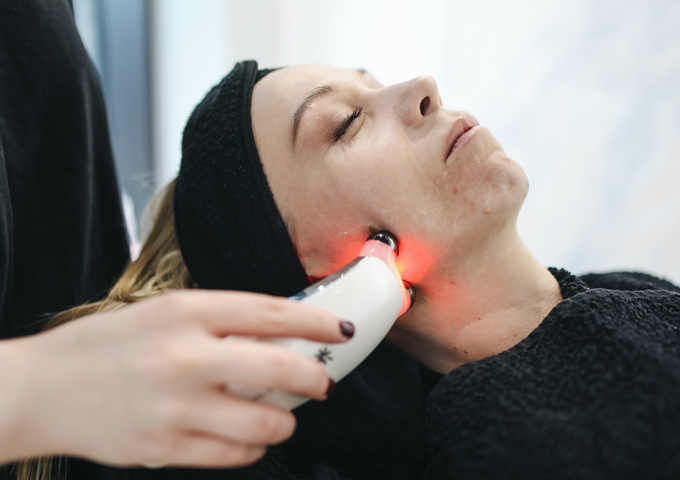It’s no secret why acne is oftentimes referred to as “common acne.” After all, it’s a very common skin condition that nearly everyone experiences at some point in their lives.
The start of acne formation begins with secretions of oil being released from the skin’s oil glands. These glands are known as sebaceous glands. When the oil gets trapped in the skin’s pores, it can result in either blackheads or whiteheads.
They take the form of blackheads which are flatter dark spots if the opening remains large. If the opening remains small, it can get inflamed and take on the form of whiteheads.
They can also develop into very swollen nodules if this occurs deep enough as underneath the surface will swell until it forms a very inflamed and tender acne lesion known as cystic acne.
While the majority of people will experience acne during their teen years, that’s not the case for everyone. As many as one out of every 5 people will develop acne that lasts long into their adulthood.
For most though, acne will start and be most prevalent at around 10-13 years old. This is generally more common for those that have oily skin during these years. Those with teen-induced acne tend to have it for a total of 5 to 10 years.
It typically starts to subside around 20 to their late 20’s. This is something that affects both sexes. However, teen boys tend to get it the most. The role flips as men and women age. Women are more likely to develop acne when they are older because of drastic hormone fluctuations that occur.
Acne is most common on the face. However, it can be found on the chest, back, shoulders, and more.
There are a lot of myths out there about acne. Some say it’s caused by poor hygiene. Some say it’s caused by a poor diet. Some say it’s even controlled by an uncontrolled sex drive. While these things may play a part in the severity of acne, none of them is the direct cause of it.
The majority of acne cases are purely caused by genetics and hormones. Because of this, you cannot stop your acne when you neglect certain foods from your diet. Nor can you scrub your face enough that you won’t experience acne flare-ups.
What is the Cause of Acne?
Acne still baffles a lot of medical professionals to this day. That’s where there isn’t a cure. The cause isn’t entirely understood. However, it’s known that stress does aggravate it. It’s also known that stress isn’t the root cause either. You should consult Dr Schrammek skincare for more expert advice on the causes of acne and how to prevent them.
1. Hormones
One of the major causes of acne is hormone fluctuation. A lot of teens experience acne the most when they are going through puberty. During this stage of life, boys and girls each have a lot of hormone production including androgen and testosterone. Testosterone is one of the main reasons boys experience acne more than girls at a young age because it’s responsible for the body producing more sebum. Sebum is the oil that is produced by the skin’s oil glands and having more sebum production increases the likelihood of experiencing acne.
2. Bacteria
When you have too much sebum production, it can result in clogged pores. This is especially true on your face. When these pores get clogged and bacteria are allowed to grow, it can result in acne flare-ups in either blackhead or whitehead forms. This clogging of the pores can lead to the hair follicle’s wall breaking which can cause sebum to leak into nearby tissue. This can result in pustule formation which is usually much more inflammatory than other types. They are also more painful.
It does depend on the type of pill. However, oral contraceptives can trigger acne flare-ups in a lot of women. They can also help certain women. You don’t truly know until you try it. Some contraceptives are more prone to resulting in flare-ups including injectable contraceptives and birth control devices. It’s also common for athletes that take steroids to experience acne.
There are many different subtypes of acne. Two of them are acne infantum and acne neonatorum. These typically affect newborns and infants. It looks like a pimply rash on the faces of the babies. Usually, it’s harmless and it will go away on its own rather quickly. However, in severe cases, it can result in scarring.
Unfortunately, those that didn’t experience acne when they were teens are at an increased risk of developing more persistent acne in their later years. While there is a normal increase in androgen production during the height of puberty, some medical professionals don’t directly relate the two.
Rather, it’s more about how one’s skin responds to the increase in production. Also, they believe the bacteria play a critical role. The bacteria is known as Propionibacterium acnes or P.acnes. While they are naturally occurring in follicles, if too many of them get trapped, it can result in an inflammatory response. It depends on how sensitive one’s skin is to this reaction that will dictate the acne response.



